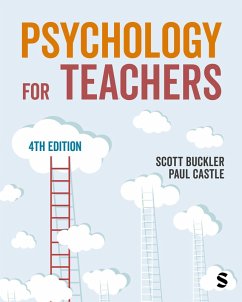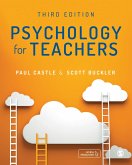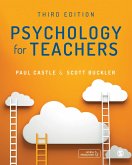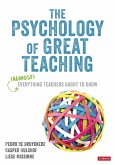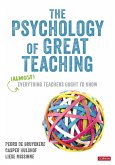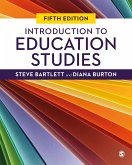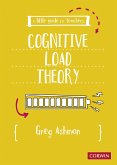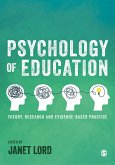92,95 €
92,95 €
inkl. MwSt.
Erscheint vor. 26.04.25

46 °P sammeln
92,95 €
Als Download kaufen

92,95 €
inkl. MwSt.
Erscheint vor. 26.04.25

46 °P sammeln
Jetzt verschenken
Alle Infos zum eBook verschenken
92,95 €
inkl. MwSt.
Erscheint vor. 26.04.25
Alle Infos zum eBook verschenken

46 °P sammeln
Unser Service für Vorbesteller - Ihr Vorteil ohne Risiko:
Sollten wir den Preis dieses Artikels vor dem Erscheinungsdatum senken, werden wir Ihnen den Artikel bei der Auslieferung automatisch zum günstigeren Preis berechnen.
Sollten wir den Preis dieses Artikels vor dem Erscheinungsdatum senken, werden wir Ihnen den Artikel bei der Auslieferung automatisch zum günstigeren Preis berechnen.
- Format: ePub
- Merkliste
- Auf die Merkliste
- Bewerten Bewerten
- Teilen
- Produkt teilen
- Produkterinnerung
- Produkterinnerung
- Weitere 7 Ausgaben:
- Gebundenes Buch
- Gebundenes Buch
- Broschiertes Buch
- Broschiertes Buch
- eBook, ePUB
- eBook, ePUB
- eBook, PDF

Bitte loggen Sie sich zunächst in Ihr Kundenkonto ein oder registrieren Sie sich bei
bücher.de, um das eBook-Abo tolino select nutzen zu können.
Hier können Sie sich einloggen
Hier können Sie sich einloggen
Sie sind bereits eingeloggt. Klicken Sie auf 2. tolino select Abo, um fortzufahren.

Bitte loggen Sie sich zunächst in Ihr Kundenkonto ein oder registrieren Sie sich bei bücher.de, um das eBook-Abo tolino select nutzen zu können.
This textbook offers a comprehensive introduction to key areas of psychology, classical and contemporary, and how an understanding of the subject can inform smart classroom practice.
- Geräte: eReader
- mit Kopierschutz
- eBook Hilfe
Andere Kunden interessierten sich auch für
![Psychology for Teachers (eBook, ePUB) Psychology for Teachers (eBook, ePUB)]() Paul CastlePsychology for Teachers (eBook, ePUB)35,95 €
Paul CastlePsychology for Teachers (eBook, ePUB)35,95 €![Psychology for Teachers (eBook, ePUB) Psychology for Teachers (eBook, ePUB)]() Paul CastlePsychology for Teachers (eBook, ePUB)37,95 €
Paul CastlePsychology for Teachers (eBook, ePUB)37,95 €![The Psychology of Great Teaching (eBook, ePUB) The Psychology of Great Teaching (eBook, ePUB)]() Pedro De BruyckereThe Psychology of Great Teaching (eBook, ePUB)23,95 €
Pedro De BruyckereThe Psychology of Great Teaching (eBook, ePUB)23,95 €![The Psychology of Great Teaching (eBook, ePUB) The Psychology of Great Teaching (eBook, ePUB)]() Pedro De BruyckereThe Psychology of Great Teaching (eBook, ePUB)23,95 €
Pedro De BruyckereThe Psychology of Great Teaching (eBook, ePUB)23,95 €![Introduction to Education Studies (eBook, ePUB) Introduction to Education Studies (eBook, ePUB)]() Steve BartlettIntroduction to Education Studies (eBook, ePUB)35,95 €
Steve BartlettIntroduction to Education Studies (eBook, ePUB)35,95 €![A Little Guide for Teachers: Cognitive Load Theory (eBook, ePUB) A Little Guide for Teachers: Cognitive Load Theory (eBook, ePUB)]() Greg AshmanA Little Guide for Teachers: Cognitive Load Theory (eBook, ePUB)11,95 €
Greg AshmanA Little Guide for Teachers: Cognitive Load Theory (eBook, ePUB)11,95 €![Psychology of Education (eBook, ePUB) Psychology of Education (eBook, ePUB)]() Psychology of Education (eBook, ePUB)41,95 €
Psychology of Education (eBook, ePUB)41,95 €-
-
-
This textbook offers a comprehensive introduction to key areas of psychology, classical and contemporary, and how an understanding of the subject can inform smart classroom practice.
Dieser Download kann aus rechtlichen Gründen nur mit Rechnungsadresse in A, D ausgeliefert werden.
Produktdetails
- Produktdetails
- Verlag: SAGE Publications
- Erscheinungstermin: 26. April 2025
- Englisch
- ISBN-13: 9781036202262
- Artikelnr.: 72251059
- Verlag: SAGE Publications
- Erscheinungstermin: 26. April 2025
- Englisch
- ISBN-13: 9781036202262
- Artikelnr.: 72251059
- Herstellerkennzeichnung Die Herstellerinformationen sind derzeit nicht verfügbar.
Scott Buckler has been involved in education since the 1990s, fluctuating between primary teaching, secondary teaching (science, computing, psychology), and universities (education, sport, psychology). From teaching research methods across the expanse of education (from the primary years through to doctorates), Scott has been an advocate of high quality research, through facilitating an open mind while maintaining academic integrity.
His research has encompassed many areas, often with the theme of personal and professional growth, through the lens of transpersonal psychology. His PhD thesis was interdisciplinary, combining anthropology and psychology to explore the way that the martial arts lead to personal transformation. Professionally, Scott's research is predominantly in applied educational psychology, inclusive education, and research methods.
Scott is a Chartered Teacher and Chartered Psychologist.
His research has encompassed many areas, often with the theme of personal and professional growth, through the lens of transpersonal psychology. His PhD thesis was interdisciplinary, combining anthropology and psychology to explore the way that the martial arts lead to personal transformation. Professionally, Scott's research is predominantly in applied educational psychology, inclusive education, and research methods.
Scott is a Chartered Teacher and Chartered Psychologist.
Part 1: Psychological perspectives on education
Chapter 1: Classical Learning Approaches within Psychology
Chapter 2: Contemporary Learning Approaches within Psychology
Chapter 3: The Effective Teacher
Chapter 4: The Philosophy and Psychology of Professional Practice
Part 2: The individual learner
Chapter 5: Neurological and Physical Development
Chapter 6: Perceptual and Cognitive Development
Chapter 7: Social, Emotional Development and Personality
Part 3: Meeting the needs of the learner
Chapter 8: Understanding the Self
Chapter 9: Understanding Special Educational Needs, Disabilities and Inclusion (SENDI)
Chapter 10: Motivation
Chapter 11: Integrating Psychology in the Classroom
Part 4: Mental health, wellbeing and resilience
Chapter 12: Mental Wellbeing
Chapter 13: Coaching Psychology and Developing Resilience
Part 5: Psychological skills training
Chapter 14: Goal-Setting
Chapter 15: Mental Imagery
Chapter 16: Self-Talk and Cognitive Restructuring
Chapter 17: Relaxation
Part 6: Evidence-based teaching
Chapter 18: Reading, Reasoning and Researching Education
Part 7: Classroom practice
Chapter 19: The Learning Environment
Chapter 20: Elearning: The New Frontier in Education
Chapter 21: The 'Ideal' Teacher
Chapter 22: Reflective Position: Integrating the Strands of this Book
Chapter 1: Classical Learning Approaches within Psychology
Chapter 2: Contemporary Learning Approaches within Psychology
Chapter 3: The Effective Teacher
Chapter 4: The Philosophy and Psychology of Professional Practice
Part 2: The individual learner
Chapter 5: Neurological and Physical Development
Chapter 6: Perceptual and Cognitive Development
Chapter 7: Social, Emotional Development and Personality
Part 3: Meeting the needs of the learner
Chapter 8: Understanding the Self
Chapter 9: Understanding Special Educational Needs, Disabilities and Inclusion (SENDI)
Chapter 10: Motivation
Chapter 11: Integrating Psychology in the Classroom
Part 4: Mental health, wellbeing and resilience
Chapter 12: Mental Wellbeing
Chapter 13: Coaching Psychology and Developing Resilience
Part 5: Psychological skills training
Chapter 14: Goal-Setting
Chapter 15: Mental Imagery
Chapter 16: Self-Talk and Cognitive Restructuring
Chapter 17: Relaxation
Part 6: Evidence-based teaching
Chapter 18: Reading, Reasoning and Researching Education
Part 7: Classroom practice
Chapter 19: The Learning Environment
Chapter 20: Elearning: The New Frontier in Education
Chapter 21: The 'Ideal' Teacher
Chapter 22: Reflective Position: Integrating the Strands of this Book
SECTION ONE: UNDERSTANDING PSYCHOLOGY
1 Introduction
2 Philosophy of education
SECTION TWO: PSYCHOLOGICAL PERSPECTIVES ON EDUCATION
3 Psychodynamic perspectives
4 Behaviourist perspectives
5 Social perspectives
6 Humanistic perspectives
7 Cognitive perspectives
SECTION THREE: THE DEVELOPING CHILD
8 Neurological, perceptual, and physical development
9 The development of the self
10 Social, emotional, personality, and behavioural development
SECTION FOUR: MEETING THE NEEDS OF THE LEARNER
11 Motivation
12 Applied cognitive science and educational neuroscience
13 Neurodivergence within the broader context
14 Mental wellbeing
15 Applied psychological skills
16 Using applied psychology to enhance behaviour
17 The effective teacher
1 Introduction
2 Philosophy of education
SECTION TWO: PSYCHOLOGICAL PERSPECTIVES ON EDUCATION
3 Psychodynamic perspectives
4 Behaviourist perspectives
5 Social perspectives
6 Humanistic perspectives
7 Cognitive perspectives
SECTION THREE: THE DEVELOPING CHILD
8 Neurological, perceptual, and physical development
9 The development of the self
10 Social, emotional, personality, and behavioural development
SECTION FOUR: MEETING THE NEEDS OF THE LEARNER
11 Motivation
12 Applied cognitive science and educational neuroscience
13 Neurodivergence within the broader context
14 Mental wellbeing
15 Applied psychological skills
16 Using applied psychology to enhance behaviour
17 The effective teacher
Part 1: Psychological perspectives on education
Chapter 1: Classical Learning Approaches within Psychology
Chapter 2: Contemporary Learning Approaches within Psychology
Chapter 3: The Effective Teacher
Chapter 4: The Philosophy and Psychology of Professional Practice
Part 2: The individual learner
Chapter 5: Neurological and Physical Development
Chapter 6: Perceptual and Cognitive Development
Chapter 7: Social, Emotional Development and Personality
Part 3: Meeting the needs of the learner
Chapter 8: Understanding the Self
Chapter 9: Understanding Special Educational Needs, Disabilities and Inclusion (SENDI)
Chapter 10: Motivation
Chapter 11: Integrating Psychology in the Classroom
Part 4: Mental health, wellbeing and resilience
Chapter 12: Mental Wellbeing
Chapter 13: Coaching Psychology and Developing Resilience
Part 5: Psychological skills training
Chapter 14: Goal-Setting
Chapter 15: Mental Imagery
Chapter 16: Self-Talk and Cognitive Restructuring
Chapter 17: Relaxation
Part 6: Evidence-based teaching
Chapter 18: Reading, Reasoning and Researching Education
Part 7: Classroom practice
Chapter 19: The Learning Environment
Chapter 20: Elearning: The New Frontier in Education
Chapter 21: The 'Ideal' Teacher
Chapter 22: Reflective Position: Integrating the Strands of this Book
Chapter 1: Classical Learning Approaches within Psychology
Chapter 2: Contemporary Learning Approaches within Psychology
Chapter 3: The Effective Teacher
Chapter 4: The Philosophy and Psychology of Professional Practice
Part 2: The individual learner
Chapter 5: Neurological and Physical Development
Chapter 6: Perceptual and Cognitive Development
Chapter 7: Social, Emotional Development and Personality
Part 3: Meeting the needs of the learner
Chapter 8: Understanding the Self
Chapter 9: Understanding Special Educational Needs, Disabilities and Inclusion (SENDI)
Chapter 10: Motivation
Chapter 11: Integrating Psychology in the Classroom
Part 4: Mental health, wellbeing and resilience
Chapter 12: Mental Wellbeing
Chapter 13: Coaching Psychology and Developing Resilience
Part 5: Psychological skills training
Chapter 14: Goal-Setting
Chapter 15: Mental Imagery
Chapter 16: Self-Talk and Cognitive Restructuring
Chapter 17: Relaxation
Part 6: Evidence-based teaching
Chapter 18: Reading, Reasoning and Researching Education
Part 7: Classroom practice
Chapter 19: The Learning Environment
Chapter 20: Elearning: The New Frontier in Education
Chapter 21: The 'Ideal' Teacher
Chapter 22: Reflective Position: Integrating the Strands of this Book
SECTION ONE: UNDERSTANDING PSYCHOLOGY
1 Introduction
2 Philosophy of education
SECTION TWO: PSYCHOLOGICAL PERSPECTIVES ON EDUCATION
3 Psychodynamic perspectives
4 Behaviourist perspectives
5 Social perspectives
6 Humanistic perspectives
7 Cognitive perspectives
SECTION THREE: THE DEVELOPING CHILD
8 Neurological, perceptual, and physical development
9 The development of the self
10 Social, emotional, personality, and behavioural development
SECTION FOUR: MEETING THE NEEDS OF THE LEARNER
11 Motivation
12 Applied cognitive science and educational neuroscience
13 Neurodivergence within the broader context
14 Mental wellbeing
15 Applied psychological skills
16 Using applied psychology to enhance behaviour
17 The effective teacher
1 Introduction
2 Philosophy of education
SECTION TWO: PSYCHOLOGICAL PERSPECTIVES ON EDUCATION
3 Psychodynamic perspectives
4 Behaviourist perspectives
5 Social perspectives
6 Humanistic perspectives
7 Cognitive perspectives
SECTION THREE: THE DEVELOPING CHILD
8 Neurological, perceptual, and physical development
9 The development of the self
10 Social, emotional, personality, and behavioural development
SECTION FOUR: MEETING THE NEEDS OF THE LEARNER
11 Motivation
12 Applied cognitive science and educational neuroscience
13 Neurodivergence within the broader context
14 Mental wellbeing
15 Applied psychological skills
16 Using applied psychology to enhance behaviour
17 The effective teacher
